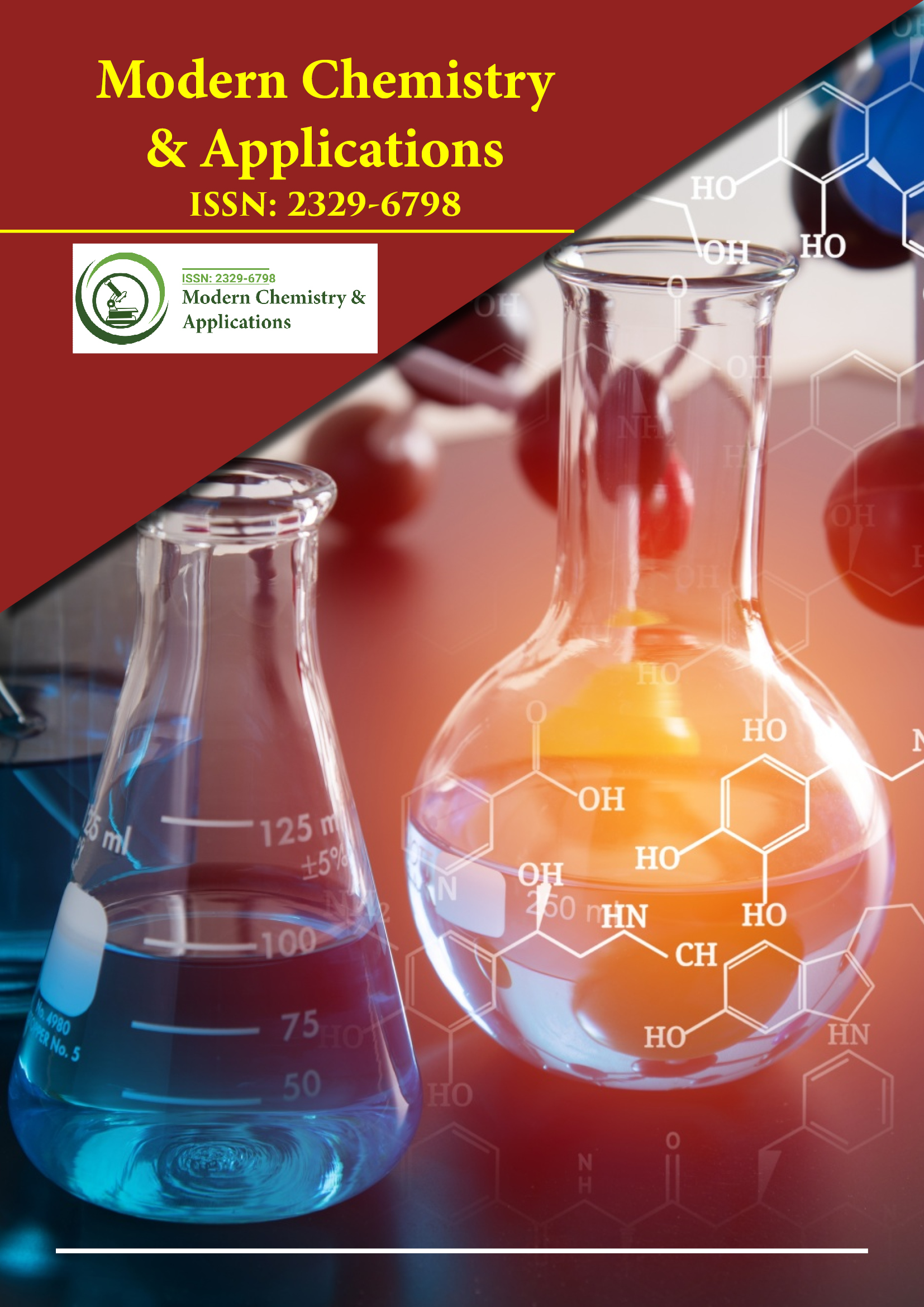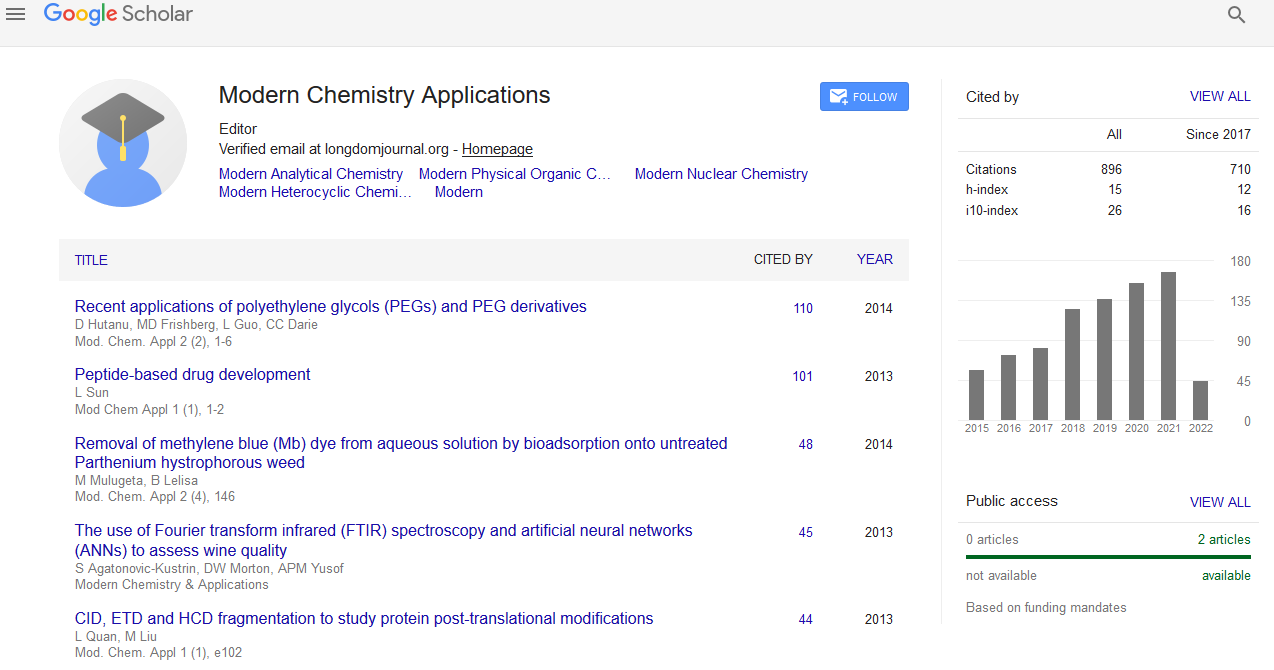Indexed In
- Open J Gate
- JournalTOCs
- RefSeek
- Hamdard University
- EBSCO A-Z
- OCLC- WorldCat
- Scholarsteer
- Publons
- Geneva Foundation for Medical Education and Research
- Google Scholar
Useful Links
Share This Page
Journal Flyer

Open Access Journals
- Agri and Aquaculture
- Biochemistry
- Bioinformatics & Systems Biology
- Business & Management
- Chemistry
- Clinical Sciences
- Engineering
- Food & Nutrition
- General Science
- Genetics & Molecular Biology
- Immunology & Microbiology
- Medical Sciences
- Neuroscience & Psychology
- Nursing & Health Care
- Pharmaceutical Sciences
Abel Jose De Sousa Costa Vieira

Abel Jose De Sousa Costa Vieira
Associate Professor, Department of Chemistry
New University of Lisbon, Portugal
Biography
Professor Abel Vieira is born in Lisbon, Portugal, in 1951. He obtained his Graduation in Chemical Engineering in 1974 at Instituto Superior Técnico (Lisbon), his PhD in Chemistry in 1988 at Universidade Técnica de Lisboa and his Habilitation in Chemistry, speciality Organic Chemistry in 2011 at Universidade Nova de Lisboa. In both universities he has been professor of several disciplines in the area of Organic Chemistry. His main research interests are in the area of Physical Organic Chemistry, Radical Chemistry and Radiation Chemistry. He integrates a research group in Green Chemistry at Universidade Nova de Lisboa – REQUIMTE – where he runs his own research group and keeps several collaborations with other portuguese and foreign groups, mainly in France and Germany. He supervised several PhD and Post-Doc students, is a referee of international peer reviewed journals and member of Scientific Societies, such as the Portuguese Chemical Society, where he was the head of the Free Radicals Group. He participated in / organized national and international scientific conferences, is a member of a European COST Action and published in high IF journals (see list of publications). Professor Vieira, besides his mother tongue, Portuguese, is fluent in French, German and English languages.
Research Interest
Professor Abel Vieira’s research interests are in the area of Physical Organic Chemistry, Radical Chemistry and Radiation Chemistry. Generation of free radicals by radiomimetic (chemical and photochemical) methods, Gamma Radiolysis and electron Pulse-Radiolysis. Characterization of transient radicals by ESR spectroscopy. Identification of final stable products by HPLC/GC-MS techniques. Oxidative stress studies. Development of new antioxidants for protection of biological targets against oxidative damage. Establishment of radical reaction mechanisms. Theoretical calculations.


